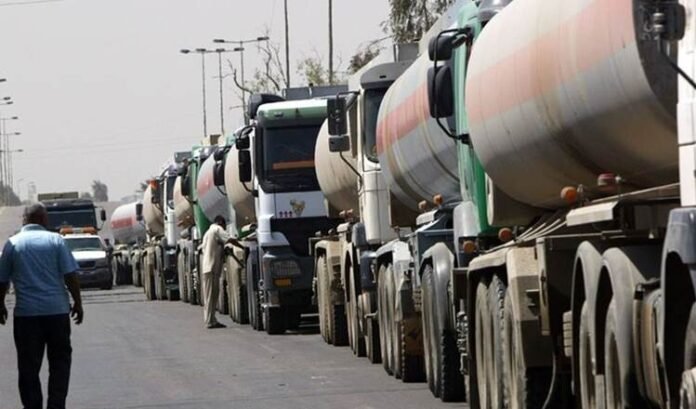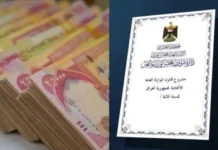The Jordanian Ministry of Energy and Mineral Resources announced that all tanks carrying Iraqi crude oil across the Trebil border had entered the Kingdom’s territory.
The Ministry has released a statement announcing the arrival of the last quantities of Iraqi oil for the current month. The report mentions that Jordan has 33 oil tanks, and its strategic crude oil stock is enough to cover its needs for more than 44 days. Additionally, the oil derivatives supply is sufficient for more than two months.
The tanks stopped from entering Jordan and had to return to Anbar Governorate. They were traveling from Kirkuk Governorate and were on their way to the Jordanian oil refinery in Zarqa. This was part of the regular transit movement that had been agreed upon between Iraq and Jordan.
The passage of tankers has been disrupted due to Iraqi demonstrators closing the Trebil crossing. As a result, the last batch of October’s fuel quantities could not cross into Jordan and return to the Iraqi Rutba region, which is about 161 kilometers away from the crossing. This was done at the request of Jordan to ensure the safety of the drivers.
According to Nael Al-Dhiabat, the Director General of the Jordanian company responsible for transporting oil tankers from Iraq to Jordan, the agreed-upon quantities of petroleum derivatives arrived in Jordan without delay.
In a recent statement to the press, Al-Dhiabat explained that their agreement with the Jordanian government requires them to supply approximately 450,000 barrels per month, which averages out to 15,000 barrels per day. The frequency of tank crossings isn’t determined by a set number, as the tanks depart from Kirkuk and may reach Jordanian territory on the same day or the following day.
Al-Dhiabat estimated the distance traveled by the tanks to be around 1,600 kilometers between the starting and arrival points.
It is unclear why tankers have been prevented from passing, as no official statements have been released. According to Reuters, Iraqi protestors, outraged by Israeli attacks on Gaza, have blocked oil trucks from crossing into Jordan. They have also stated that they will not allow the export of Iraqi oil to countries that have signed agreements with Israel in the name of peace.
For the past week, hundreds of people have been participating in a sit-in at Iraq’s main border crossing with Jordan. The purpose of this demonstration is to show solidarity with the people of Gaza and to demand an end to the Israeli bombing and siege of the Strip. The leader of the Sadrist movement, Muqtada al-Sadr, called on the Iraqi and Arab people to march towards the border with Gaza to lift the siege on the Strip, which has been under bombardment for 22 days.
The Jordanian Ministry of Energy and Mineral Resources released a statement last Wednesday, confirming that Iraq is dedicated to honoring the memorandum of understanding signed between the two countries regarding the supply of oil to Jordan. The report also mentioned that there are ongoing efforts to monitor the safety of the tanks and drivers involved in the process.
According to the statement, Iraq’s oil imports account for only 7-10% of Saudi Arabia’s crude oil and petroleum product needs. This means that there is no impact on the supply of crude oil and petroleum products, as there are significant contracts between the Jordanian Petroleum Refinery and Aramco, which is responsible for importing most of Saudi Arabia’s crude oil needs.





